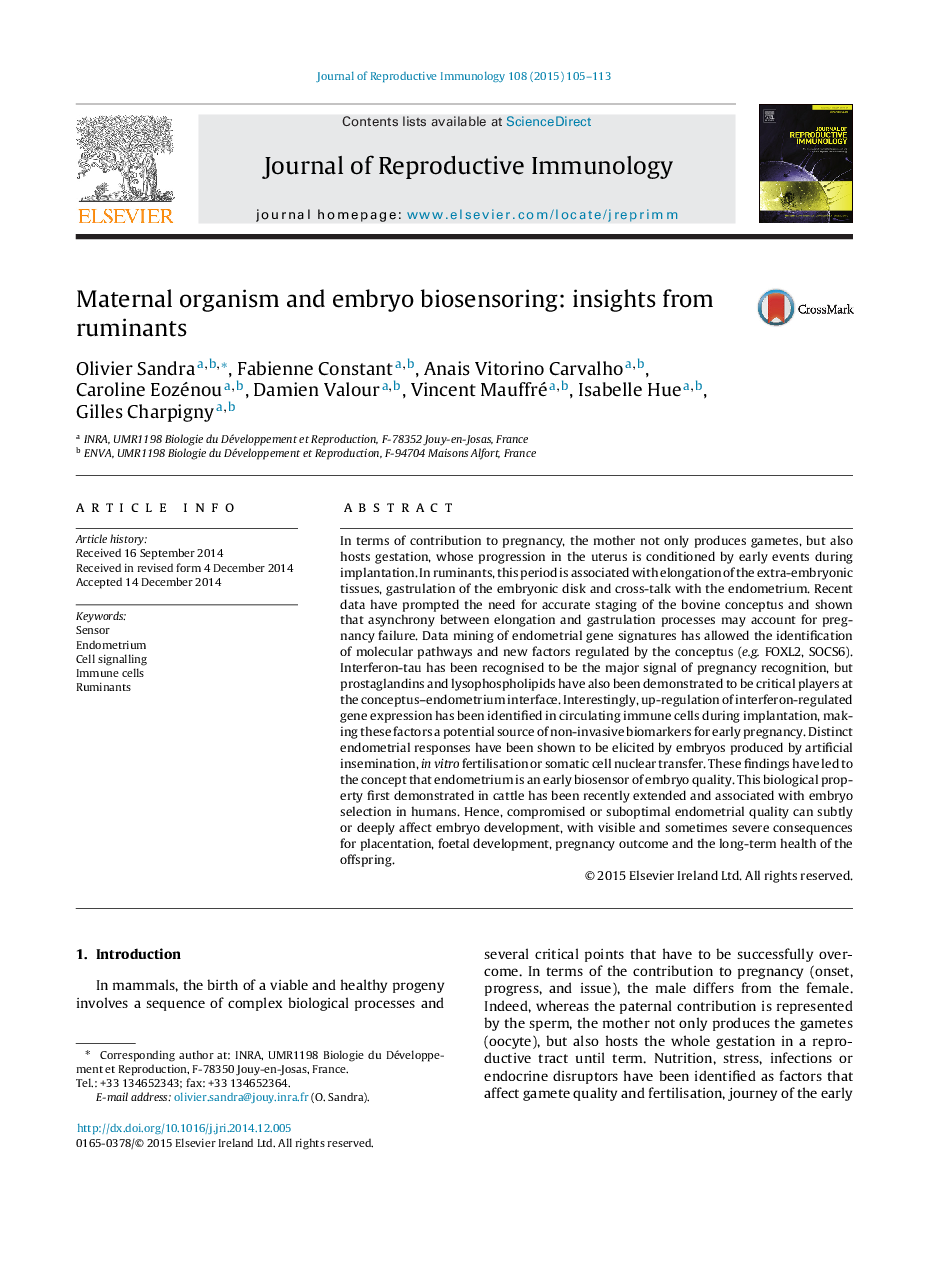| کد مقاله | کد نشریه | سال انتشار | مقاله انگلیسی | نسخه تمام متن |
|---|---|---|---|---|
| 3964592 | 1600704 | 2015 | 9 صفحه PDF | دانلود رایگان |
• Development asynchrony in bovine conceptus leads to pregnancy perturbations or failure.
• Conceptus affects endometrial gene networks and gene expression in circulating immune cells.
• Lipid mediators play essential roles in embryo–uterine interactions at implantation.
• Endometrium as a biosensor of embryo quality was first demonstrated in cattle.
In terms of contribution to pregnancy, the mother not only produces gametes, but also hosts gestation, whose progression in the uterus is conditioned by early events during implantation. In ruminants, this period is associated with elongation of the extra-embryonic tissues, gastrulation of the embryonic disk and cross-talk with the endometrium. Recent data have prompted the need for accurate staging of the bovine conceptus and shown that asynchrony between elongation and gastrulation processes may account for pregnancy failure. Data mining of endometrial gene signatures has allowed the identification of molecular pathways and new factors regulated by the conceptus (e.g. FOXL2, SOCS6). Interferon-tau has been recognised to be the major signal of pregnancy recognition, but prostaglandins and lysophospholipids have also been demonstrated to be critical players at the conceptus–endometrium interface. Interestingly, up-regulation of interferon-regulated gene expression has been identified in circulating immune cells during implantation, making these factors a potential source of non-invasive biomarkers for early pregnancy. Distinct endometrial responses have been shown to be elicited by embryos produced by artificial insemination, in vitro fertilisation or somatic cell nuclear transfer. These findings have led to the concept that endometrium is an early biosensor of embryo quality. This biological property first demonstrated in cattle has been recently extended and associated with embryo selection in humans. Hence, compromised or suboptimal endometrial quality can subtly or deeply affect embryo development, with visible and sometimes severe consequences for placentation, foetal development, pregnancy outcome and the long-term health of the offspring.
Journal: Journal of Reproductive Immunology - Volume 108, April 2015, Pages 105–113
